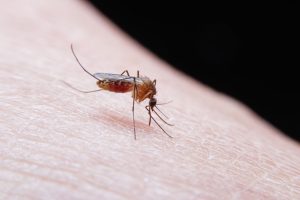In Fort Myers, mosquito season isn’t a time of year—it’s practically a way of life. Warm breezes, swaying palms, and long evenings should be the perks of Florida living, but they often come with one buzzing drawback. When your yard turns into a mosquito breeding ground, the need for a reliable mosquito treatment schedule in Fort Myers becomes a non-negotiable part of home upkeep.
Rather than reacting to itchy bites or chasing pests indoors, the smarter approach is prevention. With a thoughtful and well-timed treatment plan, you can stay a few steps ahead of their life cycle and take back your outdoor spaces before they ever become uncomfortable.
Fort Myers’ Extended Mosquito Season
Thanks to the subtropical conditions in Southwest Florida, mosquito season stretches well beyond what many homeowners expect. From the tail end of March through late fall, fluctuating humidity and frequent rainfalls keep breeding conditions alive nearly year-round.
The true intensity kicks in around May and stays strong through September—though many residents find activity intensifies even earlier following a wet spring. These patterns mean that reactive pest control isn’t just ineffective—it’s a risk. Laying out a mosquito prevention schedule in Fort Myers isn’t just good strategy, it’s protection that lasts.
How Often Should You Spray for Mosquitoes?
Treating your yard every 21 days during active months is more than just a number—it directly targets the mosquito’s natural life cycle. Eggs hatch in a matter of days, and within weeks, a new generation is airborne and biting.
Strategic scheduling is essential. Here’s how that typically plays out across the year:
- March–April (Early Spring): Start strong with a preventive application that builds a barrier before breeding spikes.
- May–August (Peak Season): Maintain consistent sprays every 3 weeks to interrupt the mosquito lifecycle. For properties near water, swamps, or lush landscaping, intervals as short as 14 days may be needed.
- September–November (Late Season): As temperatures begin to dip, don’t ease off too early. Mosquitoes don’t vanish overnight, and a few lingering populations can restart the cycle if left unchecked.
A reliable schedule ensures coverage during the most vulnerable phases of mosquito development—and helps prevent the frustrating experience of seeing them return just when you thought they were gone.
Best Time of Day to Spray
Timing treatments with mosquito behavior is just as important as how frequently you apply them. The best time to spray for mosquitoes in Florida is during dawn or dusk hours, when these pests are actively searching for a host and more likely to come into contact with control products.
UV exposure during the midday hours also breaks down certain applications quickly, reducing their effectiveness. Early morning treatments, in contrast, offer ideal conditions for product adhesion—especially along shaded areas, fence lines, and tall vegetation where mosquitoes hide out during the day.
For maximum coverage and impact, professionals also adjust treatment formulations based on current humidity, wind levels, and temperature.
Signs You May Need More Frequent Treatment
Even the most consistent mosquito treatment plan might need tweaking depending on your property or external conditions. Watch for these cues between services:
- Standing water pooling near downspouts, birdbaths, or planters
- An uptick in bites shortly after a rainy spell
- Dense foliage that creates ideal mosquito shelter
- Sudden activity in areas that were previously clear
- Mosquitoes buzzing near entrances, porches, or shaded nooks
- Reports from nearby neighbors experiencing infestations
- Swarms that appear during the day (often a sign of increased populations)
If any of these sound familiar, your current plan might not be aggressive enough to keep things under control long-term. Adjusting treatment frequency—even temporarily—can prevent a small flare-up from becoming a full invasion.
Why Every Yard Needs a Unique Approach
Mosquito problems might seem universal, but the solution isn’t. From shaded backyards lined with oak trees to wide-open lawns bordering ponds or canals, no two properties in Fort Myers come with the same set of conditions. That’s why off-the-shelf treatment plans often fall short—they simply can’t address the nuances of your specific environment.
At Pest Solutions Plus, we start by understanding your landscape. We assess how water drains across your property, identify vegetation zones where mosquitoes thrive, and factor in how you actually use your space—because a patio that hosts dinner parties calls for a different strategy than a seldom-used side yard.
Based on our evaluation, we build a customized mosquito control program designed to disrupt breeding and minimize exposure. Some properties may benefit most from targeted barrier applications. Others may need a combination of larvicides, growth regulators, and long-term solutions like our automated Mosquito Misting Systems. Everything we recommend supports both effective control and environmentally conscious treatment.
The sooner you take control, the sooner you get your yard back. Don’t let another Florida season slip by while mosquitoes dictate your plans. Reach out today, and let’s build a plan that fits your lifestyle and protects your home.
Pest control in Fort Myers isn’t about chasing symptoms—it’s about anticipating problems before they start. That’s been our philosophy at Pest Solutions Plus since 1999. Backed by decades of hands-on experience and a team that understands Florida’s unique pest challenges, we offer solutions designed for long-term relief—not just quick fixes. When mosquitoes start biting, we’re ready to fight back with strategies that actually work.






